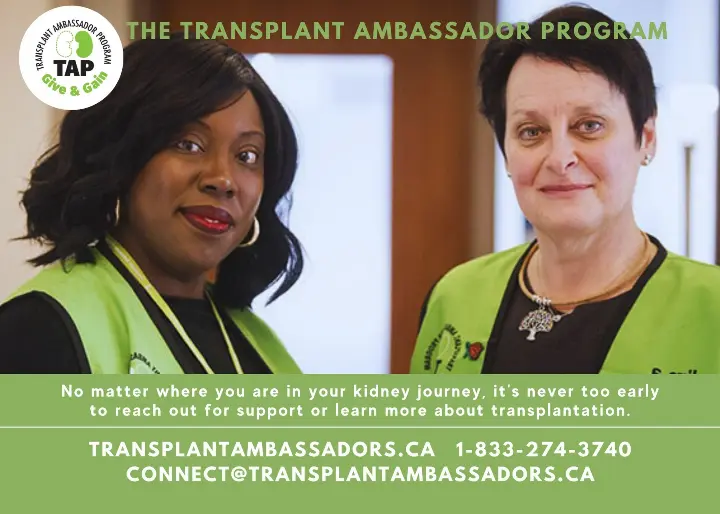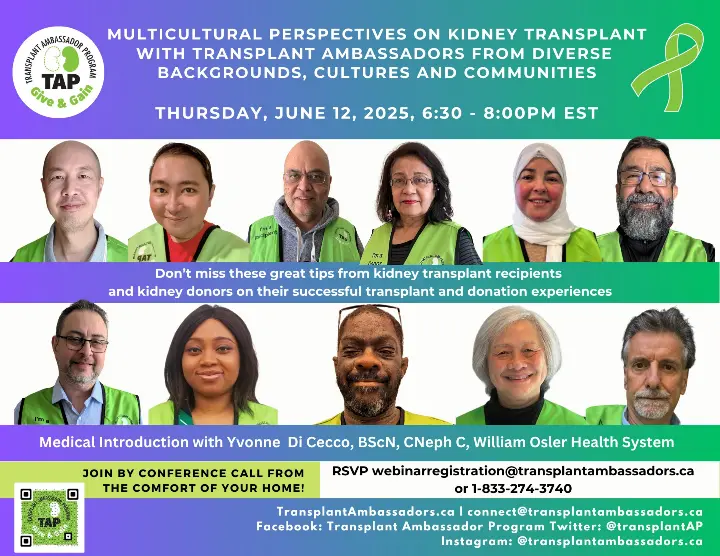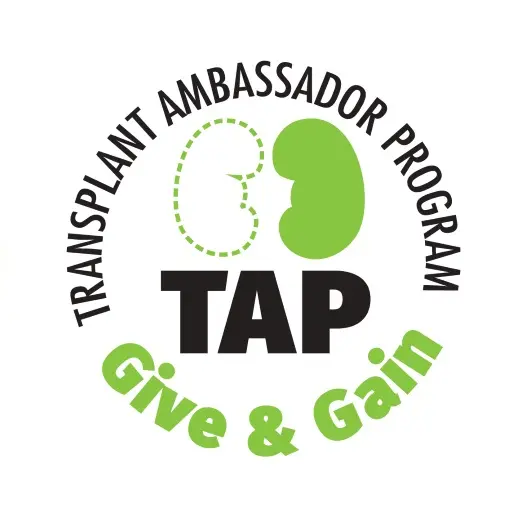
Bring Transplant Ambassadors to Alberta!
Details
Southern Alberta
The Idea
The Transplant Ambassador Program (TAP) is a free, community-based peer support initiative that connects kidney patients and potential living donors with trained volunteers (TAP Ambassadors) who are transplant recipients or living kidney donors. Ambassadors share their lived experience to provide emotional support, education, and guidance to those navigating kidney failure, dialysis, or the transplant journey. We want to bring TAP to Southern Alberta.
TAP is the flagship program of the Renal Patient and Donor Foundation (RPDF), a grassroots, patient-led Canadian charity. Unlike other programs, TAP is 100% volunteer-driven and embedded in the circle of care at kidney and transplant clinics and hospitals. Ambassadors meet one-on-one with patients, in person or virtually, to reduce fear, provide hope, and break the isolation often felt by those facing end-stage kidney disease. All Ambassadors are vetted and trained to ensure safe, compassionate support. This peer-led model works!
Chronic kidney disease (CKD) affects roughly 4 million Canadians. Research shows that kidney transplant offers much better outcomes than dialysis. Transplant patients live 12–20 years on average, compared to 5 years on dialysis. Quality of life is significantly better, and transplant is more cost-effective; dialysis costs the healthcare system about $100,000 per patient, per year.
In Alberta, approximately 6,000 people are currently on dialysis, with a similar number expected to require it within the next two years. CKD is rising in the province at a rate of 7% annually. Yet many patients are unaware that pre-emptive transplant (receiving a kidney before starting dialysis) is possible and leads to better outcomes.
Speaking with someone who has walked the same difficult path can relieve fear, offer clarity, and spark hope. RPDF wants to build a strong team of trained, passionate TAP Ambassadors in Alberta. With funding, we will recruit 15-20 Ambassadors to reach 1000+ patients in the first year in up to 25 regional clinics and hospitals, building a diverse, inclusive, and accessible program that reflects and serves the unique needs of local communities.
Who Will Benefit?
With funding, RPDF can recruit and train 15-20 new TAP Ambassadors across Southern Alberta and support them to be leaders who will establish and build relationships with renal hospitals, Transplant and Donor Coordinators, staff in renal and dialysis clinics, and patients, families, and potential living donors. Ultimately, we will help remove barriers to kidney transplant for patients and potential donors of all ages, locations, and cultural backgrounds.
This project will benefit patients, potential donors, caregivers, and support Alberta kidney care providers. By sharing lived-experiences, TAP Ambassadors provide encouragement and guidance to patients and potential donors which can improve equitable access to transplantation, improve patient knowledge about kidney transplantation and living kidney donation, and provide a better experience for patients and donors navigating the transplant process.
Peer support works to reduce isolation, fear, anxiety, and often hopelessness felt when navigating the complexities of renal failure and transplant process. Sharing lived experience can empower patients, potential donors, and their caregivers. Ultimately, this may lead to more potential living kidney donors contacting the transplant centre for an evaluation, more referrals to a transplant center for evaluation, additions to the deceased donor waitlist, and ultimately more living and deceased donor kidney transplants to save lives within the greater community.
Healthcare providers also benefit as TAP volunteers reduce the workload of frontline healthcare professionals. While most providers agree that kidney transplantation is the best treatment option for patients with kidney failure, they are overwhelmed by competing priorities, such as slowing disease progression or planning for dialysis. Many providers feel frustrated and conflicted because they want to see their patients do well but do not have the time or resources to educate them about the specifics of navigating transplant processes. TAP eases that healthcare gap; providers will see patients be better educated, receive transplants, and increase their job satisfaction.



